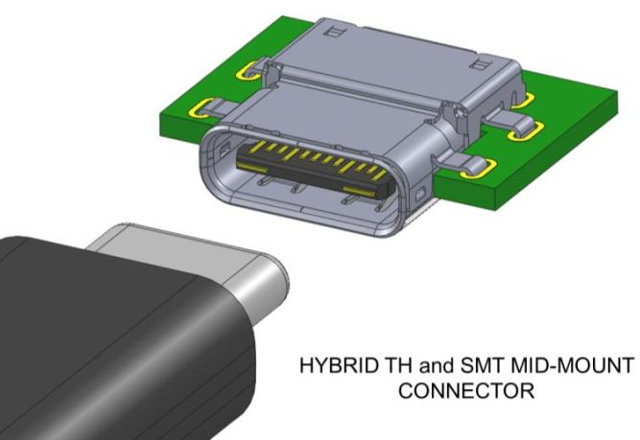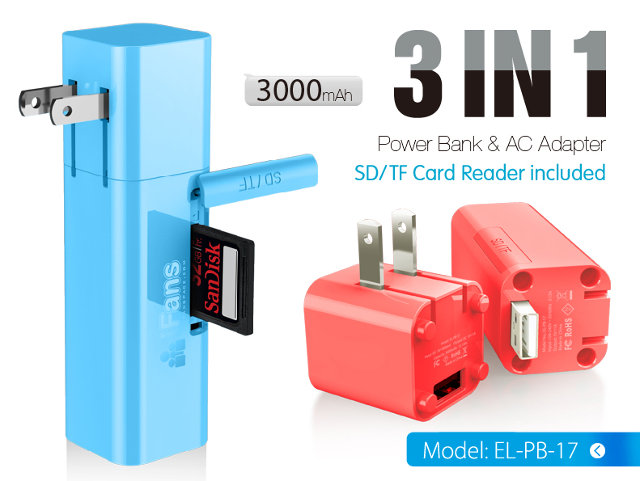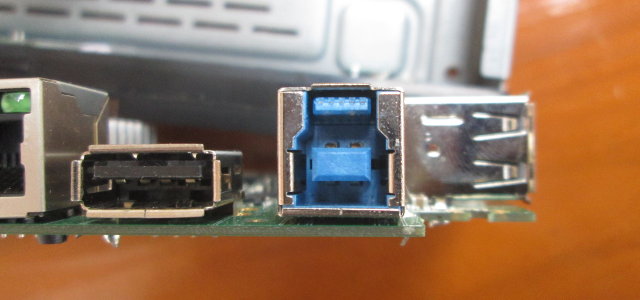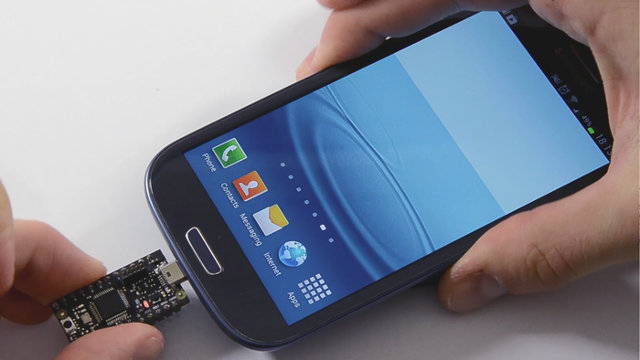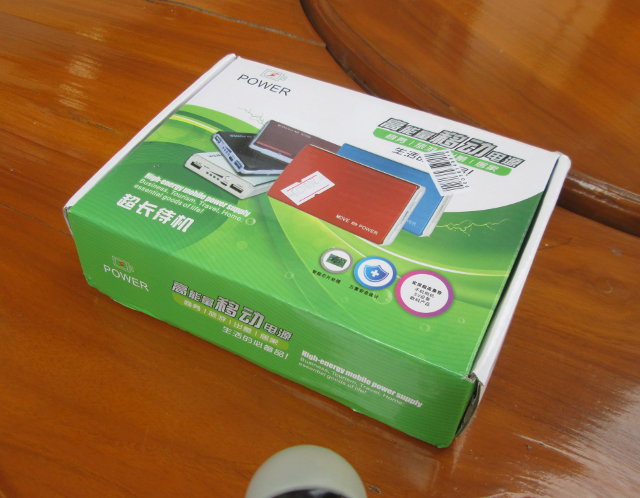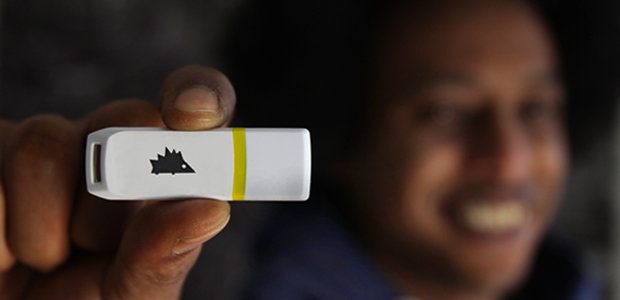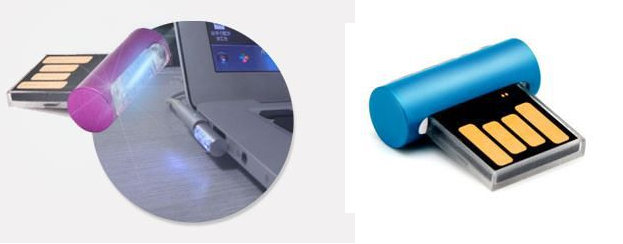Yesterday, I wrote about the Egg personal cloud storage device which allows you to easily store and share your files without having to rely on cloud services, and also includes a touchscreen display. But it might be possible to achieve the main selling point of that product, that is keeping your data private, while accessing it from anywhere, at a fraction of the cost, by using a Wireless USB flash drive instead. Some well known companies such as Kingston (rather expensive), and Sandisk (much more affordable) already offer such products, but I’ve been informed Zsun, a Chinese company, was also manufacturing such devices with up to 32 GB capacity. The company calls its wireless flash drive “Apple Disks” showing how much money you could save with their device, by showing the ridiculous price different between apple devices with difference storage capacity, but they can also work with Android devices, as […]
USB Type-C Reversible Connectors Specifications Published
We now have all sorts of USB receptacles and connectors, but this is supposed to eventually change thanks to type-C connectors, which are small and robust enough to be used in laptop, computer, smartphones, and other type of devices, and will replace the USB type A, micro and mini USB ports. Type-C connectors will also be reversible, so there won’t be a way to insert the cable upside down. The USB 3.0 Promoter Group has just announced the completion of the USB Type-C specification, and transferred it to the USB Implementers Forum (USB-IF) for ongoing management and the establishment of a compliance and certification program. Key features of Type C specifications include: Entirely new design Tailored for emerging product designs Robust enough for laptops and tablets; slim enough for mobile phones Similar to size of USB 2.0 Micro-B Usability enhancements – Reversible plug orientation and cable direction Supports scalable power charging […]
iFans EL-PB-17 is a 3-in-1 USB Wall Charger with a Battery and an SD Card Slot
I’ve noticed TYLT ENERGY 2K a USB wall charger with an internal 2,300 mAh battery, is currently on Kickstarter for $20, and received some press coverage. The main advantages of this system is that it saves space ,and you don’t need to remember charging your phone and your USB power bank separately, it will just charge both within 3 to 4 hours. However, since I’ve recently purchased a USB solar power bank with a 30,000 mAh battery (actual 8,000 to 10,000 mAh) for about $25, I thought there must be better options with a larger batter and similar price, or cheaper price with a similar battery size. It turns out there aren’t so many options, but I did find NewTrent Travelpak Plus with a 7,000 mAH battery that sells for about $40 on Amazon and even $19 on Ebay. But I’ve found a product even more original and versatile with […]
USB 3.0 Connectors and Receptacles Explained
The other day, I opened one of the products I received for review, and I found a blue connector on the board with no description. USB 3.0 connectors are blue this connection seemed “funny” with two internal connectors, and I though it must have been something else, and asked on Google+. It turned out this is a USB 3.0 Standard-B receptacle. As my knowledge about USB 3.0 connectors was obviously lacking, I’ve decided to investigate and have a look at the different existing and upcoming USB 3.0 connectors that we should find in different types of devices and computers now or very soon. Standard-A USB 3.0 connectors and receptacles This is the easy one, it looks very similar to the USB 2.0 connectors, except it’s blue and adds 5 pins for USB 3.0 connectivity. It’s backward compatible with USB 2.0, and the receptacle is used for hosts. Most people must have […]
USB2Go ARM Cortex M3 Development Board for Android Smartphones (Crowdfunding)
Many MCU based development boards such as Arduino or mbed platform connect to a computer via USB for power and programming, at least during the development stage. USB2Go, however, is designed with a micro USB port to connect directly to your Android smartphone, although it can also be used for standalone project, and an Arduino compatible baseboard is also available. This board powered by an STM32 ARM Cortex M3 MCU is however mainly destined to interface hardware such as LED, servos, sensors to your smartphone via micro USB providing both power and a communication channel with your Android device. USB2Go hardware specifications: MCU – STMicro STM32 ARM Cortex M3 MCU @ 72 MHz with 128 KB Flash, 64 KB SRAM USB – Micro USB for power and programming Headers – 2x 12 pin headers giving access to GPIO, ADC, PWM, UART, I2C, SPI… Debugging I/F – JTAG 20-pin to SWD […]
USB Solar Power Bank Review
A few months ago, I won a $5 coupon for DealExtreme, and decided to buy a “Portable 5V (30,000mAh) Li-ion Battery Solar Power Bank w/ Dual USB + LED – Black + White” for just over $20. For the price, solar charging was a nice bonus, and the 30,000 mAh was probably a “mistake” but it did not really matter. The SKU is gone, but 1BA-2 Solar power bank ($23.97) appears to be a very similar product. I did not plan to write about this gadget, but a few things happened that made me change my mind. First. it took over two months to reach me, instead of the usual 2 to 4 weeks. I ordered on the 9th of November 2013, and received the package on the 25th of January 2014. The reason being that the package got declined by Thai immigration (I live in Thailand). DealExtreme could not […]
Keepod Unite Aims to Bring Computer Access to Africa with $7 USB Sticks and Refurbished Laptops (Crowdfunding)
The Raspberry Pi foundation has done a great job to bring to market $25 and $35 computers for kids to learn programming, but they have many other uses including hardware “hacking” and bringing low cost computers to developing countries. Keepod and NGO LiveInSlums have thought of an apparently more cost effective way to bring computing access to people living in slums in Nairobi, Kenya, by providing USB sticks (about $7) to boot refurbished laptops. This is absolutely NOT a $7 PC as a few other websites have mentioned. The goal is to facilitate NGO communication, the spread of knowledge and economic development in a way that’s personal and secure. The USB flash drives will belong to one person, and contains a Linux based operating systems with all files saved in the stick, and no modifications on the host computer which does not even need an hard drive to work, and […]
RYVAL Elf Could Be the World’s Smallest USB Flash Drive
Hexino, a French company selling “fashion technology” under the brand RYVAL, may be offering the smallest USB flash drives available today with RYVAL Elf. This tiny mass storage device measure 1.8 cm x 1.8 cm x 0.68 cm, weights only 2 grams, and is available with capacities of 8GB, 16GB, or 32GB. The specifications listed on the company’s website are as follows: USB 2.0 compatible with Windows Vista, 7 and 8 Write speed – Up to 4 MB/s Read speed – Up to 12 MB/s Weight – 2 grams Dimensions – 18 mm x 18 mm x 6.8 mm Capacity – 8 GB to 32 GB Colors – Blue, Pink, and Green Material – Aluminium They only mention compatibility with Windows, but I don’t see why it could not work with Mac, Android, and Linux based devices and computers. It’s small enough to replace microSD cards for permanent storage expansion, […]



